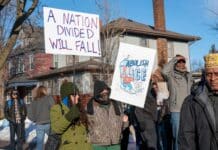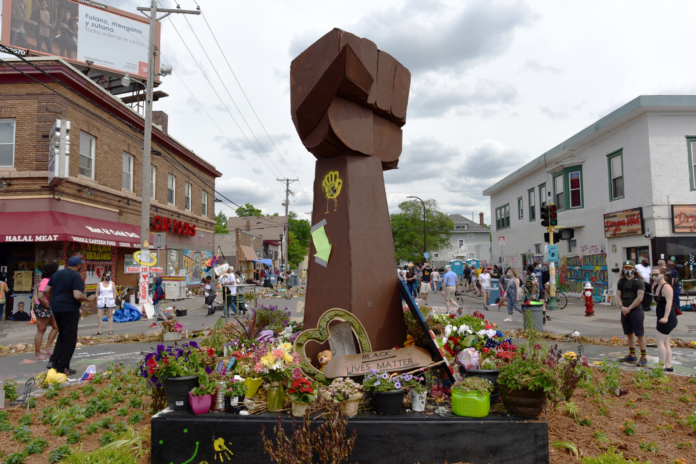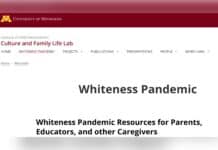Elected officials across Minnesota think racism is a “public health emergency.”
Several counties and cities in Minnesota have declared racism a public health emergency along with the Minnesota House. Many of these declarations, like the ones in Minneapolis and the county that covers Rochester, were made last summer shortly after George Floyd’s death. However, the effort remains active today. The city of Red Wing just declared a racism emergency in mid-August.
“Racism has various forms including historical, individual, and systemic, and
that has not only continued to present day but has been institutionalized to ensure the
concentration of material, power, and resources into the hands of white bodied
individuals,” says the Red Wing City Council’s resolution.
Under the resolution, the Red Wing City Council has agreed to “set aside a dedicated fund of money for supporting racial equity initiatives.”
Other non-governmental entities like the Hennepin County Bar Association, the Minnesota Council of Nonprofits, individual doctors and Minnesota’s branch of Blue Cross Blue Shield, a health insurance company, are pushing hard to have racism declared a crisis. The latter of these organizations has even conducted polling on the issue to discover that the majority of Minnesotans describe racism as “a significant problem” and donated $5 million to establish a “Center for Antiracism Research for Health Equity” at the University of Minnesota.
Minnesota is not alone in the push to make racism into a health issue. CDC director Dr. Rochelle Walensky said racial bias poses a “serious public health threat” earlier this year as several other high-profile medical institutions like Harvard’s School of Public Health echoed this claim.
According to the U.S. Department of Health and Human Services (HHS), public health emergencies can be declared at the federal level in response to “significant outbreaks of infectious disease or bioterrorist attacks.” If the HHS declares an emergency, the secretary of the department can access certain funds, make temporary staff appointments, order alterations to Medicare and Medicaid coverage, enable the secretary of defense to deploy “military trauma care providers” and more.
However, these vast powers are not available to local leaders who declare public health emergencies. Rather, the local declarations issued in Minnesota are largely symbolic. For example, Red Wing City Councilman Evan Brown said his town’s declaration is meant to serve as the “start of a conversation.” Minneapolis’s plan to respond to its purported racism emergency is equally vague, calling for the development of programs to address “inequitable health outcomes” in the city.
In another symbolic act, the Red Wing City Council also approved a resolution “denouncing the display of hate symbols on public property.”
Racism isn’t the only politicized topic that has been declared an issue of public health recently. Under President Joe Biden’s leadership, the CDC has also moved to characterize gun violence as a health problem. Critics of this move largely argue that it is a backdoor method of bringing more opportunity and funding to gun control initiatives.











